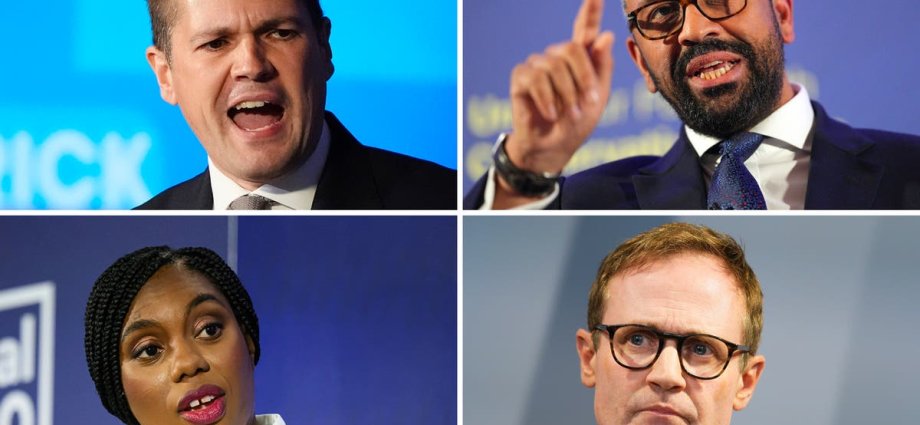The Conservative leadership contest continues to ramp up after the four remaining contenders made their pitches to voters and delegates at the party’s 2024 conference.
Kemi Badenoch, James Cleverly, Robert Jenrick and Tom Tugendhat are the final candidates for the Tory top spot. Although the race was announced on 5 July, the leader will not be revealed until early November – although two candidates have called for the timeframe to be cut down.
Until then, former prime minister Rishi Sunak retains the position and has refused to be drawn into the ongoing contest so far.
Conservative MPs are set to whittle the field down to two final candidates on 9 and 10 October.
Polls have put Ms Badenoch ahead of the pack, with Mr Jenrick closing in at just four points behind – up from 15 points six weeks ago. Dividing lines were drawn between the pair at the conference in Birmingham when Ms Badenoch suggested maternity pay in the UK is “excessive”.
Although the former business secretary later backtracked, Mr Jenrick took the opportunity to reaffirm his support of maternity provisions, saying he is “firmly on the side of parents and working mums”.
Meanwhile, the polling puts Mr Cleverly and Mr Tugendhat as third and fourth favourites. Although a separate poll showed that Mr Cleverly was the general public’s first choice, it is only Conservative Party members that will be voting in the final round.
Here’s your guide to the four candidates to be the next Conservative Party leader.
Kemi Badenoch
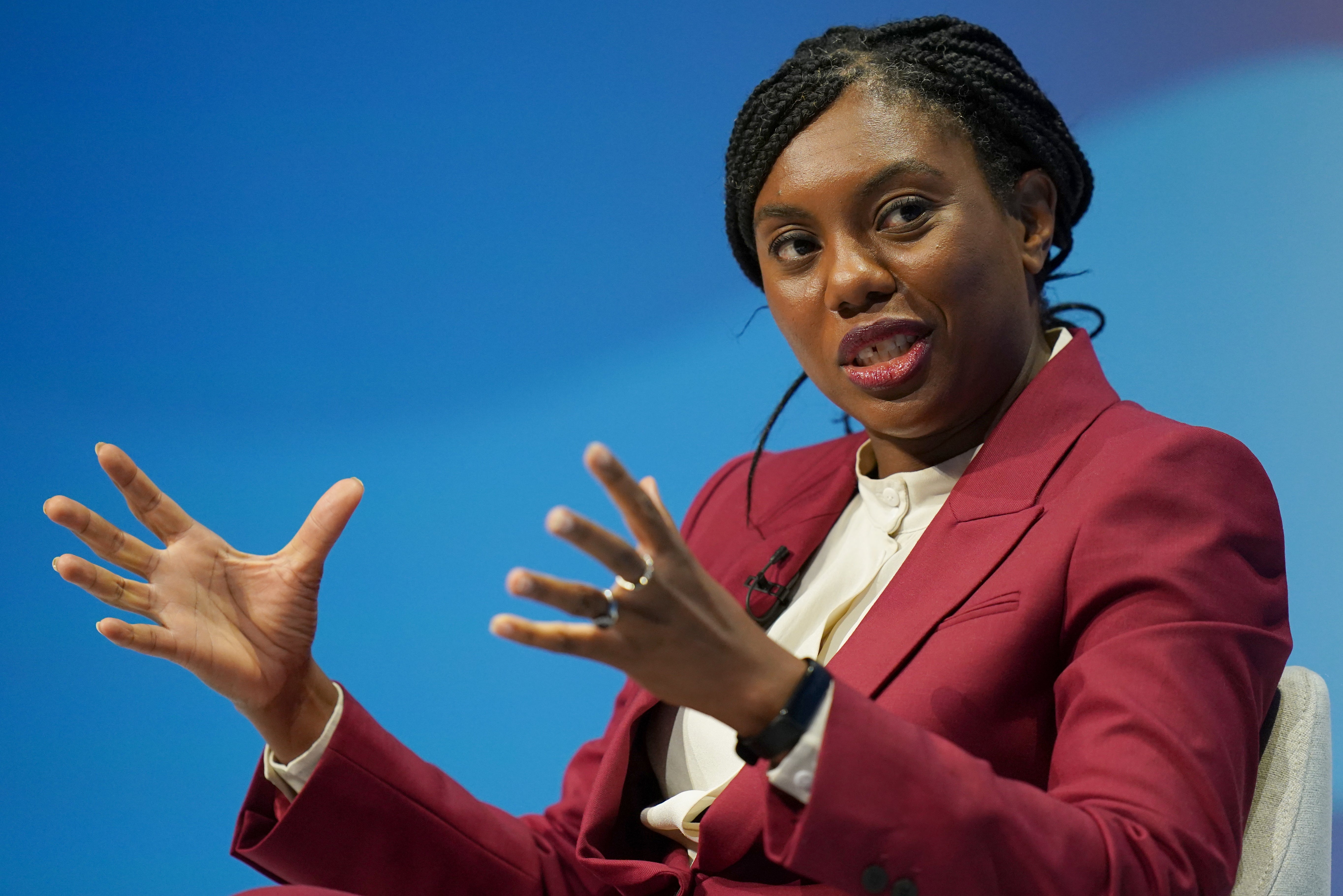
The combative former business secretary, who has been involved in a number of high-profile clashes, has previously been seen as a front-runner. She had a good run when she competed for the leadership in 2022.
A one-time darling of the Conservative right, she was seen to have blotted her copybook when she canned a pledged bonfire of EU red tape.
She officially launched her campaign the night before nominations opened, calling for the contest to be a debate about “what it means to be a Conservative”. Diagnosing the Tory election defeat, she added “we deserved to lose because the past decade saw us twist and turn in the wind, unsure of who we were”.
Ms Badenoch came in second place in the first ballot of MPs with 22 votes.
James Cleverly
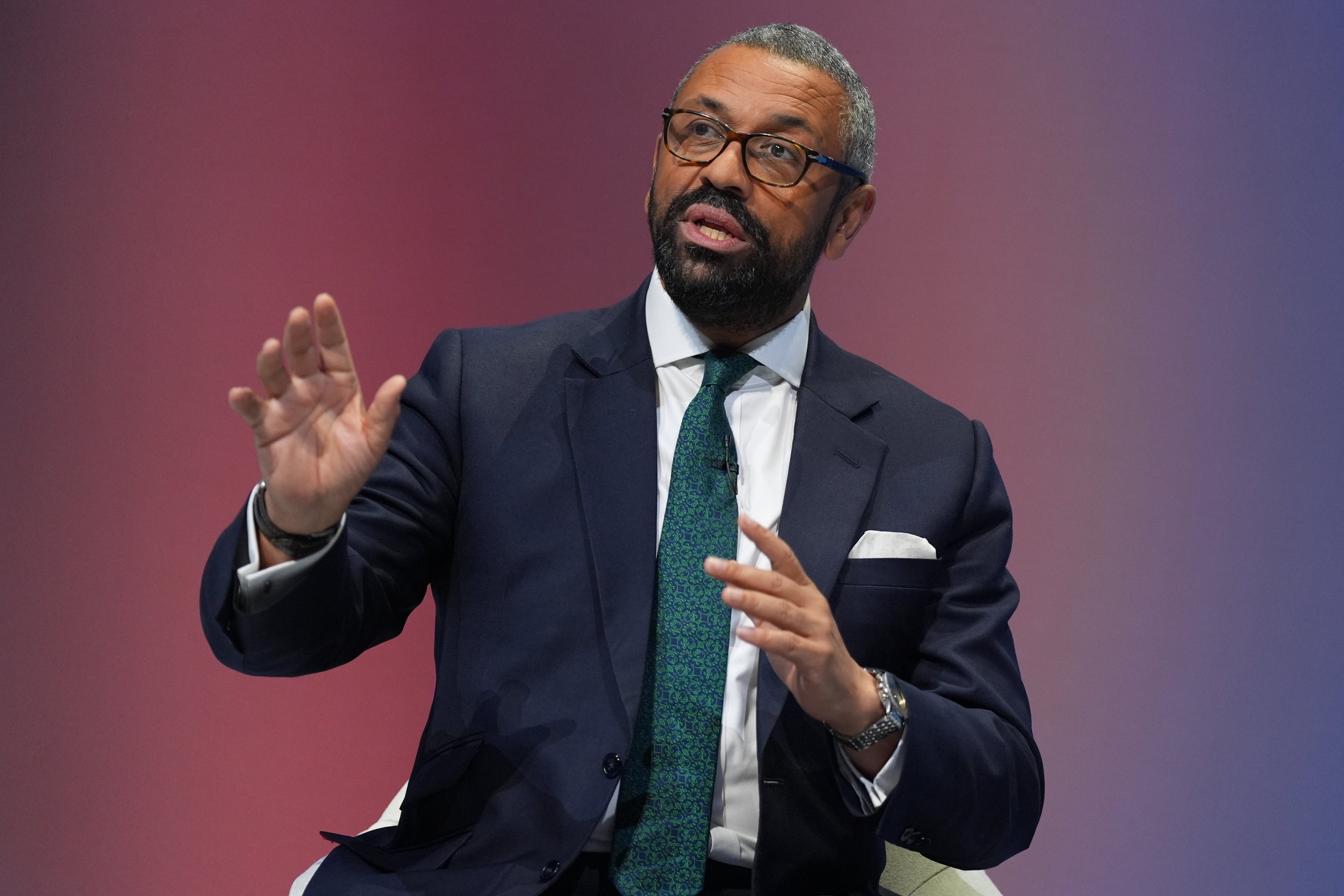
James Cleverly became the first contender to formally launch a leadership bid, promising to unite the warring party weeks after Mr Sunak’s historic defeat.
A former home secretary, he promised to “overturn Starmer’s loveless landslide” and “restore the confidence of the British people in us as a party”. Mr Cleverly’s appeal comes from having served as home and foreign secretary, two of the UK’s great offices of state. He is also seen as more moderate than candidates such as Robert Jenrick and Kemi Badenoch, while still taking a hard-line approach to legal and illegal migration.
He received 21 votes in the first ballot of MPs.
Robert Jenrick
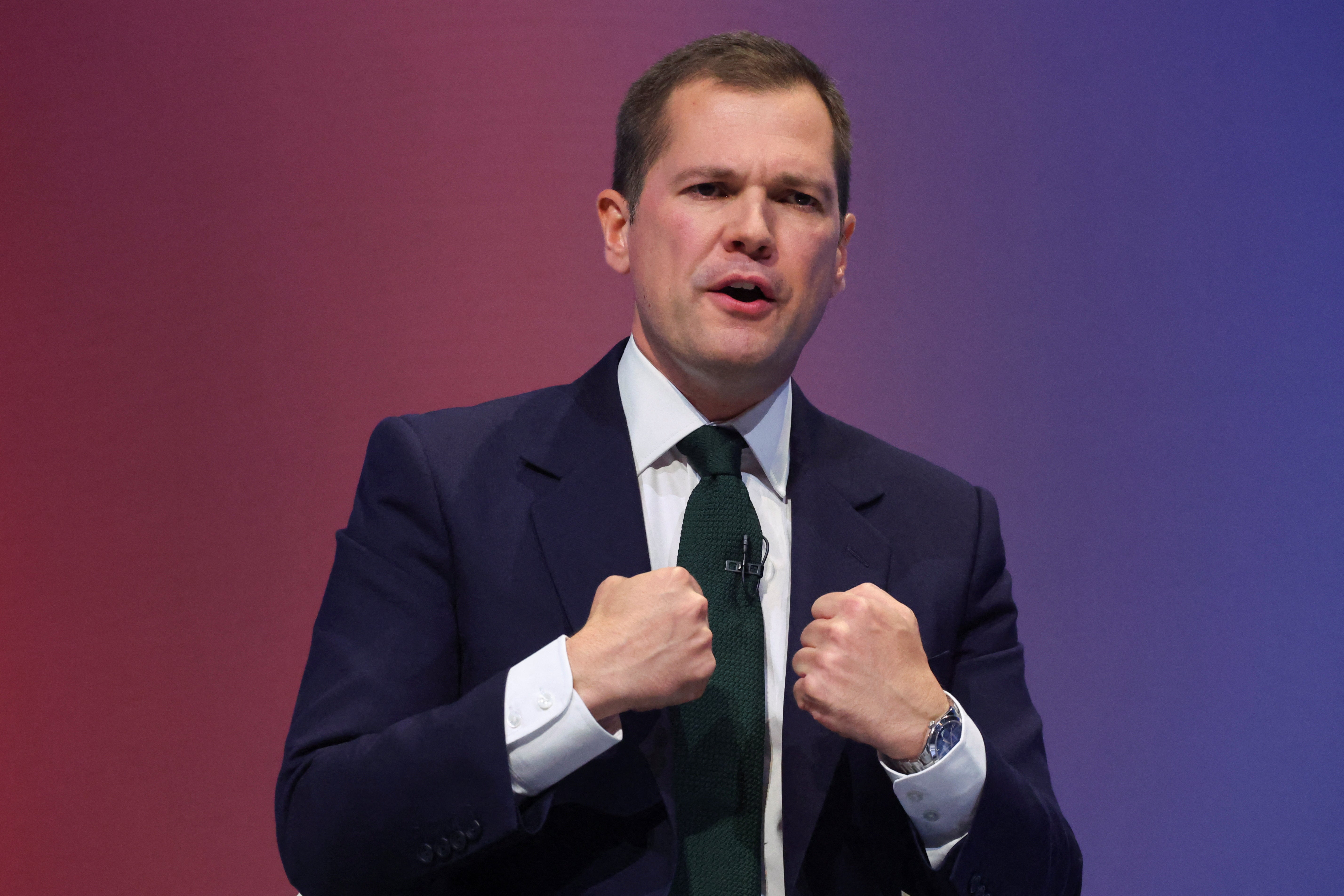
A one-time close ally of Mr Sunak, he later turned on the former PM over issues such as immigration and housebuilding in the dying days of his premiership.
Some Tory MPs, on both wings of the party, are wary of his apparent change of heart on the issue. But he is seen as someone with the politics to win back right-wing voters lost to Reform UK, with the personality of David Cameron to help the Tories win back those who voted for the Liberal Democrats in the blue wall.
Mr Jenrick’s campaign manager, Danny Kruger, said the former immigration minister has the “energy, temperament and policy agenda to take on our rivals and lead us back to power in five years”.
Jenrick has emerged as the frontrunner among Tory MPs after picking up 28 votes in the first ballot.
Tom Tugendhat
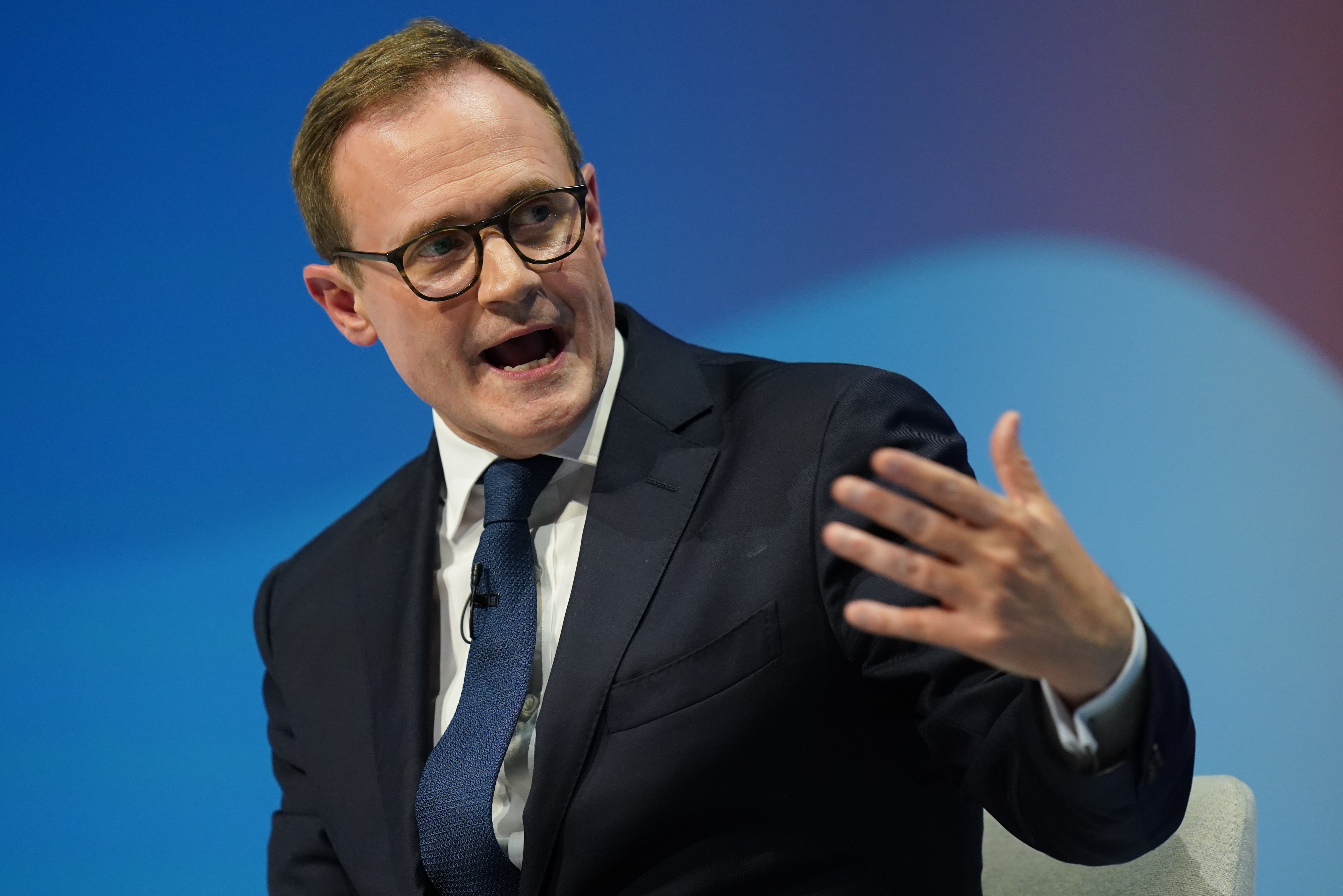
One of the great hopes of the One Nation Conservatives, security minister Tom Tugendhat also flew out of the traps to launch his leadership bid just a day after Mr Cleverly.
Mr Tugendhat stood unsuccessfully for the leadership two years ago, placing fifth in the contest which saw Liz Truss take over as prime minister.
He is considered to have grown in stature since then and has had a job in cabinet that he can use to argue he is a serious leader who can take his party through difficult times.
After formally entering the race, he highlighted his track record of delivery, having served in Iraq and Afghanistan, enjoyed a stint as security minister and “stood up to dictators in parliament”.
Shadow security minister Mr Tugendhat received 17 votes in the first ballot of MPs.











